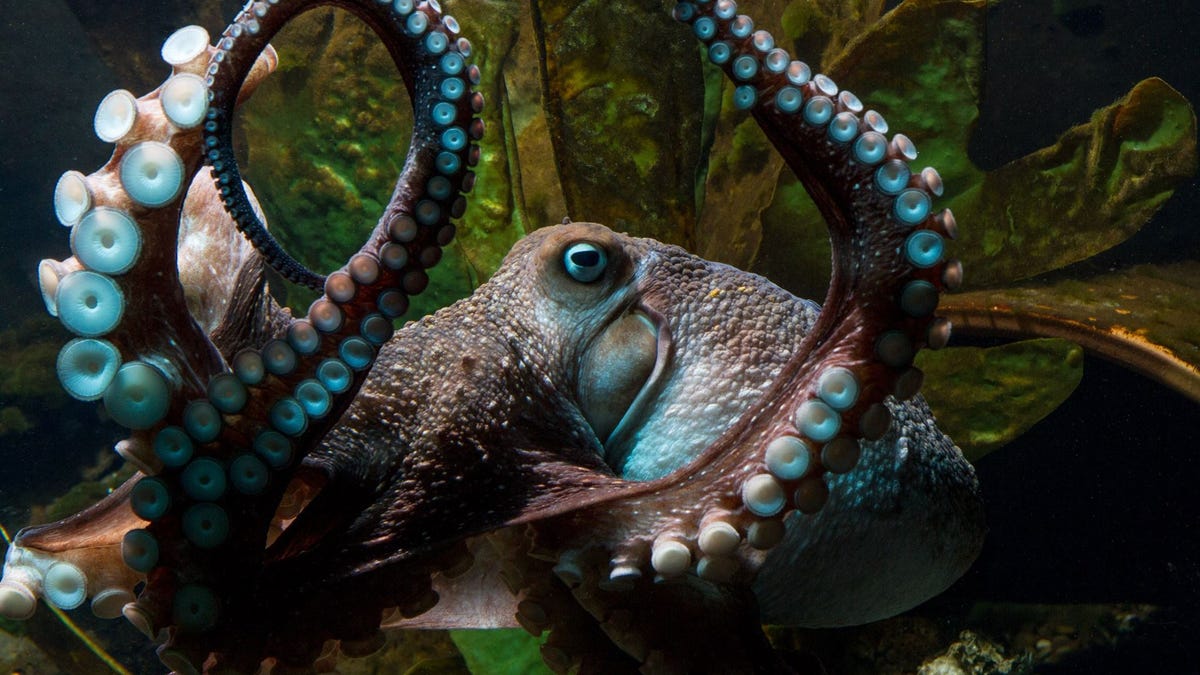Octopuses on ecstasy react a lot like humans do
A study out of Johns Hopkins University doses octopuses with MDMA to learn more about the drug's effect on the brain.

The octopus who normally leads an anti-social existence.
Humans and octopuses are separated by over 500 million years of evolution, but they share something in common: both feel good on party drugs.
Psychoactive drug MDMA, often referred to as ecstasy or molly, can make people feel extra affectionate due to a rush of serotonin, dopamine and oxytocin. And it has the same effect on our tentacled friends of the sea, according to research that appears in Thursday's issue of Current Biology.
Scientists at Johns Hopkins University wanted to study how serotonin levels in the brain may change while on MDMA, and if the drug can effectively be used to promote social behavior in octopuses, which are naturally almost entirely antisocial except when mating.
The species chosen for the test was Octopus bimaculoides, the only octopus species whose entire genome is sequenced. This allowed the research team to make comparisons between the genes in octopuses and humans.
For the study, researchers placed octopuses into a special aquarium with individual chambers separated by mesh walls.
After closely monitoring the behavior of non-drugged octopuses, the researchers dosed them with MDMA by placing them in a water bath containing MDMA for 10 minutes. They then returned them to the sectioned-off chambered areas in the aquarium.
The dosed octopuses spent more time than the non-drugged octopuses interacting socially by touching one another with their tentacles.
This led the researchers to conclude that the effects of MDMA on serotonin in the brain work similarly in octopuses and humans by encouraging more social behaviors.
"Despite anatomical differences between octopus and the human brain, we've shown that there are molecular similarities in the serotonin transporter gene," Johns Hopkins researcher Gul Dolen said in a statement. "These molecular similarities are sufficient to enable MDMA to induce prosocial behaviors in octopuses."
Culture: Your hub for everything from film and television to music, comics, toys and sports.
Solving for XX: The tech industry seeks to overcome outdated ideas about "women in tech."

